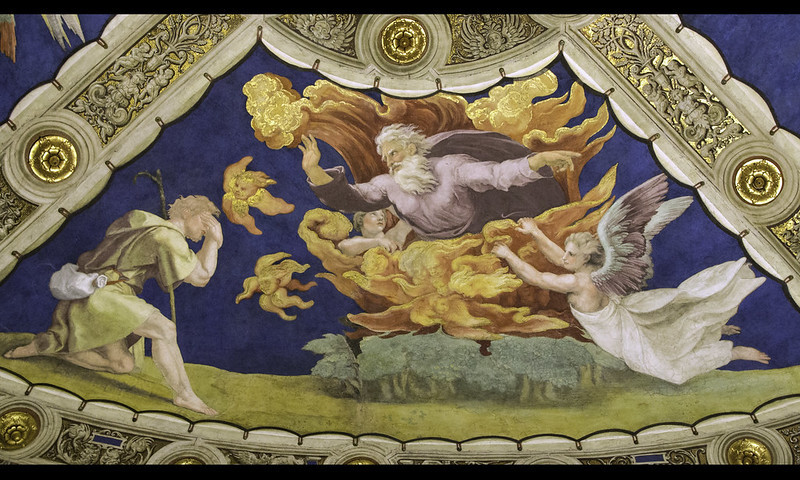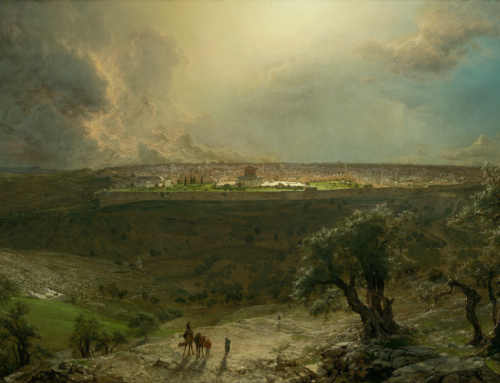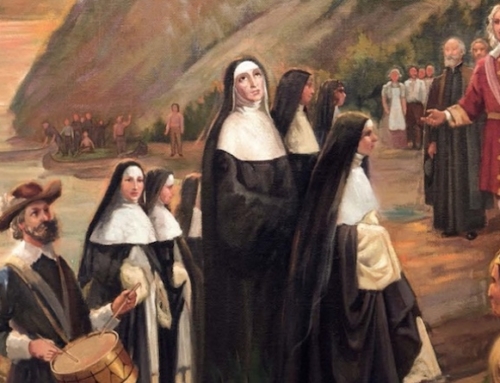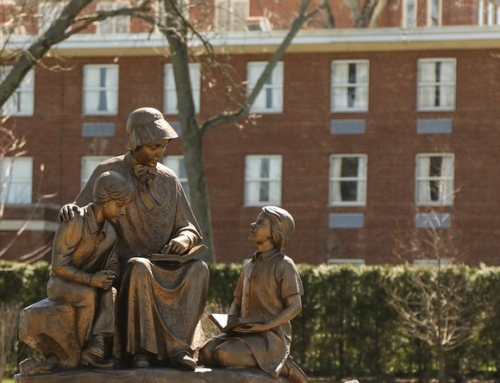2020 Advent Series: O Adonai
“O Adonai, and leader of the House of Israel,
who appeared to Moses in the fire of the burning bush
and gave him the law on Sinai:
Come and redeem us with an outstretched arm.”
Our Father, who art in Heaven, hallowed be thy name. The first thing we ask God in the prayer taught to us by Jesus Christ is to hallow his name—the unutterable name, יהוה (YHWH). Out of respect for this title, when the Jews read the scriptures they speak a substitute word, Adonai (“My Lord”), in its place. In the Jewish tradition the Tetragrammaton, the four letters of the name of God in Hebrew, holds special significance as the name Moses received when he asked God in the burning bush, “If I come to the people of Israel and say to them, ‘The God of your fathers has sent me to you,’ and they ask me, ‘What is his name?’ what shall I say to them?” God replied, “I Am Who Am” (Ex 3:13–14).
This aspect of being, of God “Who Am,” is puzzling on the surface, but to the metaphysician, this is a profound pronouncement: God is “Am,” he is being itself. What does that mean? He’s not being like you and me “being” here sipping a cup of coffee reading a blog post; no, he’s being in a whole different way. He’s the exemplar of being beyond all limitation! He is the source of existence.
And that is cause for pause.
God, the source of everything, he who is, chose to come to earth and rescue humanity through his son, Jesus Christ. And in Christ, the God of the universe, existence itself, lies cuddled in his mother’s arms, guarded over by Saint Joseph. Thirteen hundred years prior, our almighty God called out to Moses from a flaming bush in that powerful encounter with man. At his birth, the God of the world lies in a manger like a “little prisoner bound by swaddling bands” in stunning silence (Joseph the Silent, 94).
It is humbling that God, who introduced himself to Moses in a cryptic yet magnificent manifestation, would deign to take on human form and come into the world without fanfare, without trumpets—nay, with the solace of silence. The only noise came from the majestic angels off in the distance singing “Glory to God in the highest!” (Luke 2:13–14).
It is fitting that God would come to earth in such stillness. It hearkens to the tranquility of the barren desert where God spoke with Moses. It prefigures the stillness of Holy Saturday, when Christ descends into the realm of the dead to save the righteous. And in the serenity of that Christmas night, we quietly await God’s birth as our Savior and Lord who will redeem us from our sins.
Our Father, who art in Heaven, hallowed be thy name. Indeed, hallowed be thy name, O Adonai, that every knee should bend and every head shall bow in heaven and on earth and under the earth (Phil 2:10). As the prophet Zechariah instructed: “Silence, all mankind, in the presence of the Lord! For he stirs forth from his holy dwelling” (Zech 2:17). Christ promised he would be with his people. As we sing today, “Come and redeem us with an outstretched arm,” let us plead in silence for his hasty arrival as he stirs forth from his mother’s womb on Christmas night.
✠
Photo by Fr. Lawrence Lew, O.P. (used with permission)







